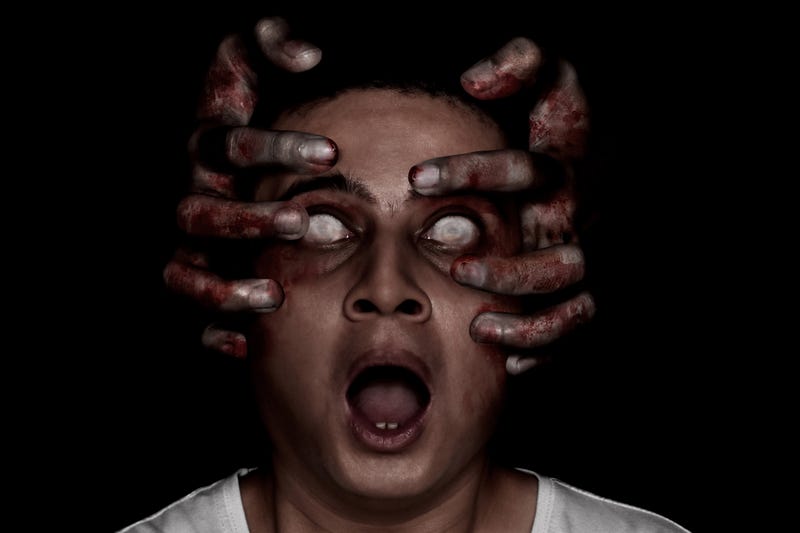NEW YORK (1010 WINS) -- On this episode of "Your Weirdest Fears," host Larry Mullins sits down with parapsychologist Helané Wahbeh to find out. Listen as the two break down the stigmas surrounding demonic possession and learn what you can do if you ever find yourself in the presence of spirit.
What you should know:
• There’s no name for the fear of demonic possession specifically, but the fear of demons is called daemonophobia.
• While the term “demonic possession” is more popular, those who study the phenomenon refer to it as “spirited possession.” It’s defined as being the unusual or altered state of consciousness with the body under control of a human body by spirits, ghosts, demons, or gods.
• The concept of spirit possession exists in many cultures and religions, including Buddhism, Christianity, Haitian Vodou, Hinduism, Islam, Wicca, and Southeast Asian, African, as well as Indigenous traditions.
• Possession may be considered voluntary or involuntary. Depending on the circumstance, it might also have beneficial or detrimental effects on the host.
• In a 1969 study, it was found that 74% of people all over the world believed in spirited possession. with the highest numbers of believing societies in Pacific cultures and the lowest incidence among Native Americans of both North and South America.
• Historically, exorcisms have been used to treat a wide variety of symptoms that are now associated with mental health issues. People with schizophrenia, personality issues, delusions, hallucinations, or severe depression might all have been considered candidates for exorcisms in generations past.

What our expert says:
• No science has definitively proven the existence of spirits.
• There is also no data on how often possession happens, but it is considered to be an incredibly rare occurrence.
• When asked specifically if she believes demonic possession is real, Dr. Helané Wahbeh says, “With the tools we have today we can't definitively prove, one way or another, if spirits are real.”
• She adds that the power of human belief is exponential, and implies that there is a possibility that over time mankind has witnessed one phenomena, and labeled it as demonic possession, when it could have been something else entirely.
• She acknowledges how people who struggle with mental health issues have been incorrectly diagnosed in the past, and that the most important thing is “ to support people with the experiences that they're having.”
• She implores anyone who thinks they are suffering from demonic possession to seek the right spiritual guidance.

